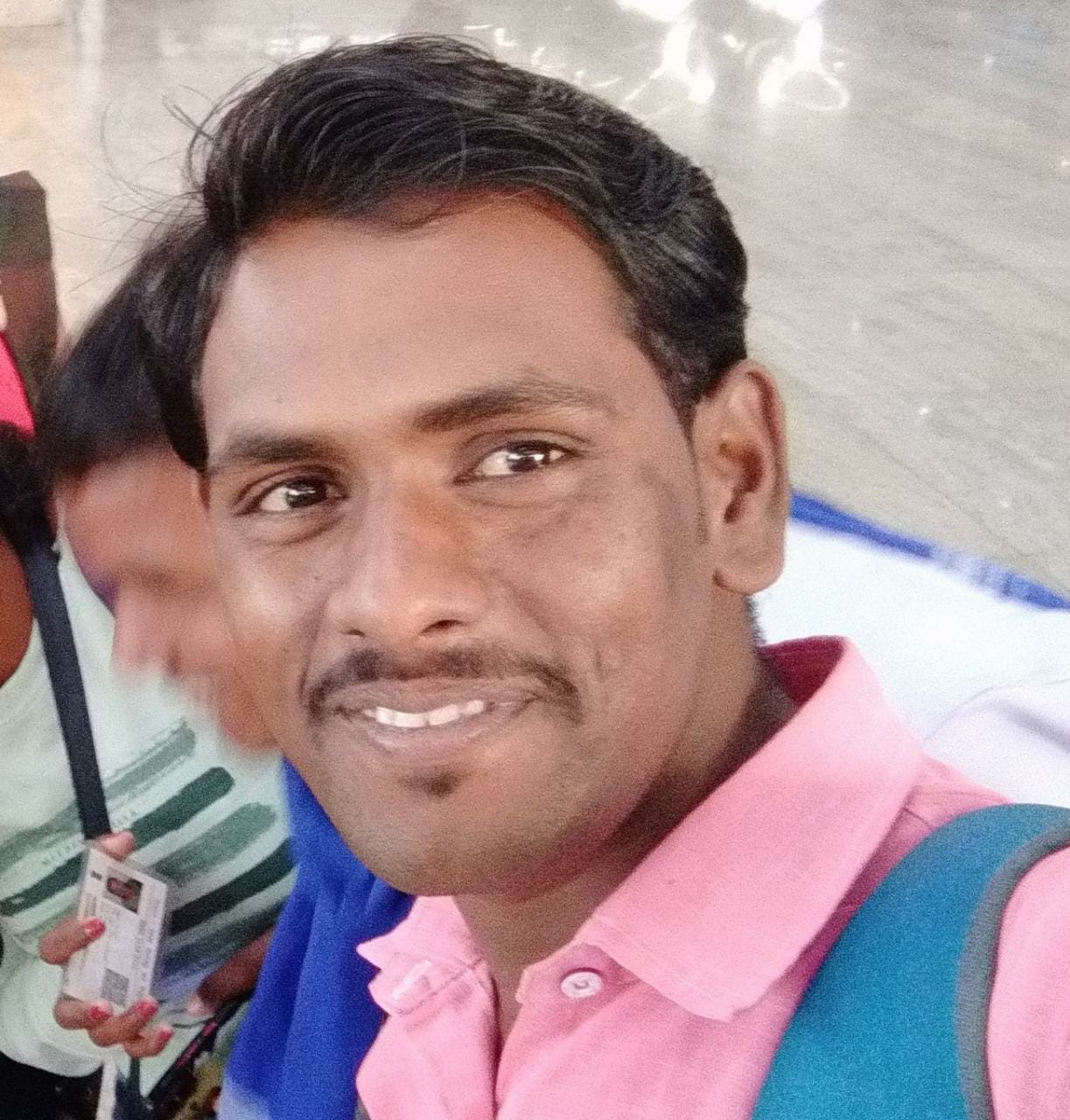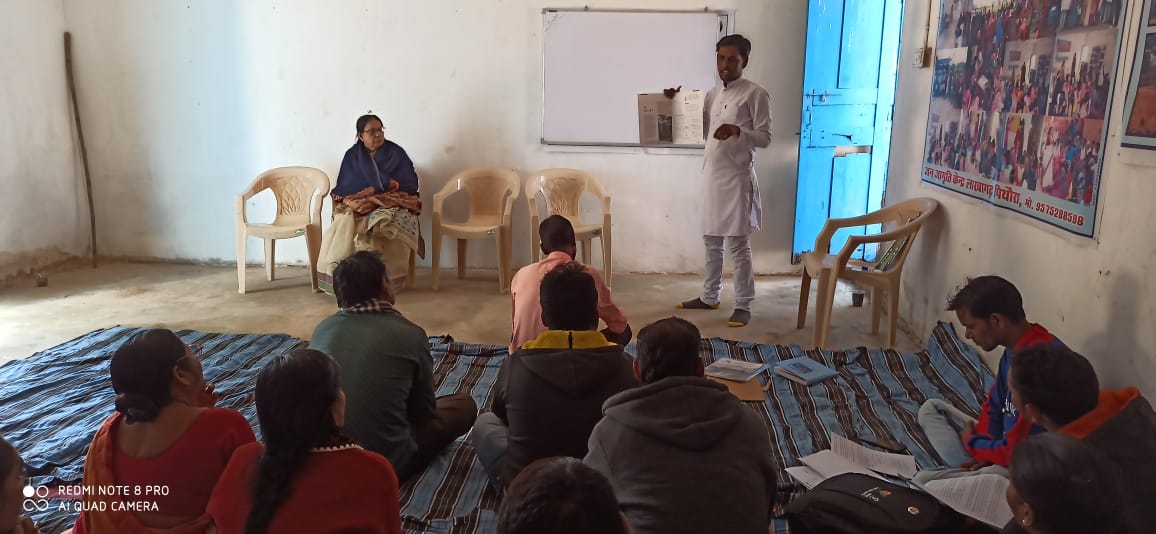‘My Family Worked as Bonded Slaves for Two Decades; Here’s My Story’
Atmaram Markende, 24, founded Shramik Adhikar Aur Nyay Sangathan (SAANS) in 2020 to help bonded labourers, who are stuck slaving away in various parts of the country.

It is a sorry state of affairs that in the 21st century, with all the advancement in technology and development, such a thing like bonded labour still exists today.
One such gut-wrenching story is of Atmaram Markende (24) and his family, residents of Gudhela Patha, Mahasamund in Chhattisgarh. They had been working as bonded labourers at a brick kiln for over two decades.
“Since the time I was old enough to have an understanding of the world around me, I have seen my grandfather and father go from state to state, working as brick kiln workers,” Atmaram tells The Better India.
At the age of seven, Atmaram would spend half-a-day at school and the rest at the kiln, where he had to help out.

Despite this, he managed to study up to Class 12, and says, “I failed twice in Class 10 because I had to study at home by myself, given our financial constraints. I did, however, manage to clear it and went on to finish my Class 12 examination as well.” Academics have always been important to Atmaram and not one to give up, he says that he is currently studying his Second Year Bachelor degree course.
While Atmaram was putting in a lot of effort in a bid to alleviate his family from the poverty and conditions they were in, tragedy struck.
‘Justice for my father’
“In 2017, my parents and I were working on a brick kiln in Uttar Pradesh,” he says. After having worked on this site for a while, one evening the father and son went to the brick kiln owner to request payment. “I still think back on that day and feel miserable. The reason we wanted to get the money was to get me a new mobile phone. If only I did not want that phone,” Atmaram says as he chokes up.
When they reached the kiln, his father was asked to stay back while Atmaram was sent back home. Since some time had elapsed since his father was at the kiln, Atmaram went back to find him. Recalling moments from that fateful day, he says, “I remember trying to go back to the kiln and ask around for my father. Unfortunately, I was turned away and could not even see him.”
He continues, “That night when my father returned, he seemed out of sorts. He started complaining of pain in his chest, and before we had the chance to react or help him, he passed away.” Atmaram says that he never understood what transpired that day and is still haunted by the loss of his father. Unfortunately, the ordeal did not end there.
Atmaram made several attempts to find out what happened to his father by asking the brick kiln owner, but got nowhere. “They refused to allow me to cremate my father’s body. He also did not let us get a post-mortem done,” he says, adding that the body was disposed of by the brick kiln owner without the consent of his family. While Atmaram could not do anything then, he subsequently filed a petition against the owner in the lower court at Uttar Pradesh.
“Even today I am running pillar to post to get justice for my father,” he shares.
Call for help

While this happened almost five years ago, the loss of his father still felt raw and unhealed. “In terms of education I do not have too much to go by, but the determination to help people in similar situations pushed me forward,” he says.
Last year, Atmaram received a frantic call from 12 migrant labourers who belonged to his village in Chhattisgarh. They were stuck in Balangir in Odisha and wanted help to be brought back home, as they were all working as bonded labourers. “I knew I had to help them. The guilt of not helping my father always weighed heavy on me,” he adds. This was the spark that lit the desire that had been lying dormant in him for the past five years.
“I have seen first-hand the kind of torture that we [bonded labourers] have to face. We are locked up, go without food for days, often subjected to severe physical pain and beatings,” he says. The burning desire to help my brothers get out of that place was what was driving me to work overtime.
The first step was to reach out to the contractor who had facilitated the entire job process and had them placed in Odisha. Knowing that he would have to try various different channels, he also started making a list of all the workers stuck in Odisha and took the list to the Panchayat Pradhan. “Armed with just the names, the Pradhan told me that I would need more details, if I wished to help them,” says Atmaram. Nothing deterred Atmaram and he swung into action mode.
“I kept calling the Pradhan and pushing him to take responsibility and be of help,” he says. After all the coordination, the Pradhan was finally able to organise a vehicle to get the labourers out. Atmaram also took on the additional financial responsibility and the remaining amount was paid by the labourers. It cost him Rs 10,000 per person to get them back to the Odisha border.
It was this incident that pushed Atmaram to start his own organisation called Shramik Adhikar Aur Nyay Sangathan (SAANS) in 2020. Over the last one and a half years, the organisation has helped over 40 migrant labourers, who very often were also bonded labourers, not just make their way back home but also get freedom from their bonded labour.
Hemlata and Sanjay Kumar were stuck during the lockdown, not knowing whom to approach to get back home. It was Atmaram’s organisation that mobilised help, got their papers in order and had them return to their respective villages.
Even before the lockdown and the inception of the organisation, Atmaram had been working to find ways to free labourers who continue to work under coercion. While it has not been an easy journey he says that he does not wish what happened to his father upon any other family.
Atmaram’s story seems anachronistic, and the imagery of the treatment meted out to the bonded labourers reads like the treatment of African slaves of centuries past. But the reality is grim and the future bleak for the thousands of bonded labourers–each of whom is a citizen of the Republic of India–slaving in their own land.
(Edited by Yoshita Rao)
If you found our stories insightful, informative, or even just enjoyable, we invite you to consider making a voluntary payment to support the work we do at The Better India. Your contribution helps us continue producing quality content that educates, inspires, and drives positive change.
Choose one of the payment options below for your contribution-
By paying for the stories you value, you directly contribute to sustaining our efforts focused on making a difference in the world. Together, let’s ensure that impactful stories continue to be told and shared, enriching lives and communities alike.
Thank you for your support. Here are some frequently asked questions you might find helpful to know why you are contributing?


This story made me
-
97
-
121
-
89
-
167













